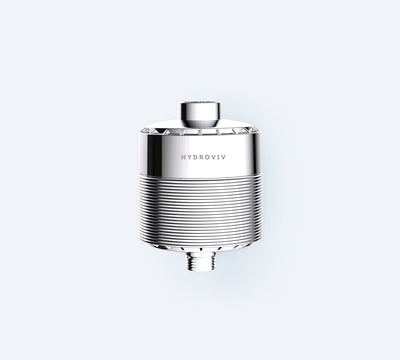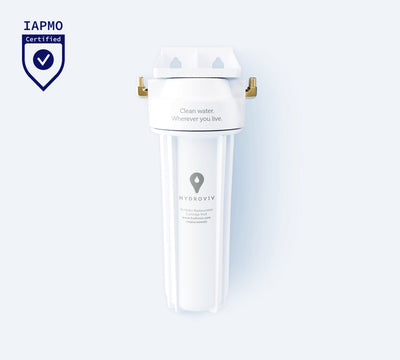Problems We Found In Lincoln Nebraska's Drinking Water
RSSEmma Schultz, M.S. | Scientific Contributor
Updated March 2, 2022 to include most recent data
For our assessment of the city of Lincoln' water quality, we aggregated water quality test data from Lincoln, NE Water Quality Report, the water provider for Lincoln, and the U.S. Environmental Protection Agency (EPA), as well as from samples that we collect and analyze. We cross reference these data with toxicity studies in the scientific and medical literature, and look at upcoming regulatory changes. The water filters that we sell in Lincoln are optimized with these issues in mind.
Source Of Lincoln Drinking Water
Lincoln’s water source is groundwater from wells along the Platte River near Ashland. Approximately one-half of the supply is groundwater and approximately one-half is groundwater under the direct influence of surface water. In 2020, more than 12.5 billion gallons of water were pumped from these wells to serve the 292,000 people who used an average of about 34.2 million gallons of water each day.
Arsenic In Lincoln Drinking Water
Arsenic is a dangerous heavy metal known to cause cancer, among other health problems. Arsenic originates in source water. While the city of Lincoln' water quality is in compliance with EPA water quality standards, consumers should take note that the EPA standard balances toxicity against the costs of removing arsenic from drinking water; the standard is therefore quite high. Lincoln’s most recent tap water quality report listed arsenic concentrations ranging from 6.13-6.35 parts per billion. We strongly advocate that tap water with more than 1 part per billion be treated to remove arsenic, especially if there are children in the home.
Very High Levels Of Lead In Lincoln Drinking Water
Lead enters into tap water through aging lead service pipes and lead-containing plumbing. When corrosion control measures fail, such as in Flint, Michigan, lead leaches into drinking water and reaches toxic levels. 2019 analysis for lead in Lincoln NE water quality found a 90th percentile concentration of 3.12 parts per billion, with samples ranging up to 13.7 ppb. The Action Level for lead, for reference, is 15 ppb. EPA and CDC have stated that there is no such thing as a safe level of lead, and of course, federal regulations cannot take into account levels measured at an individual tap. For perspective, the American Academy Of Pediatrics recommends that children not drink from taps with lead levels over 1 ppb.
Chromium 6 In Lincoln Drinking Water
Chromium 6 is a hazardous metal not fully regulated by the EPA. Lincoln’s tap water recently averaged 39 parts per trillion for chromium 6. These levels are nearly 2 times higher than the concentration determined to have a negligible impact on cancer risk.
Disinfection Byproducts (DBPs) In Lincoln Drinking Water
DBPs are a type of emerging contaminant that are formed when chlorine-based disinfectants (added to the water supply to keep it safe) then combine with naturally-occurring organic matter. Although these chemicals are not well regulated, EPA has explicitly stated that they have been linked to an increased risk of bladder cancer, as well as kidney, liver, and central nervous system problems. Lincoln’s tap water has recently found trihalomethanes (TTHMs) averaging 37.2 parts per billion, and Haloacetic Acids (HAA5s) averaging 21.4 parts per billion.
Use Of Chloramine In Lincoln Tap Water
While most cities use chlorine as the primary disinfectant, Lincoln’s water is disinfected with chloramine, which is made by combining chlorine and ammonia. Chloramine is the frequent culprit for what customers report as the “bad taste” of tap water, and unlike chlorine will not dissipate if left in the fridge overnight. Most one-size-fits-all water filters use filtration media that don’t adequately remove chloramine, but the filters that Hydroviv builds for Lincoln use special filtration media that are purpose-built to remove chloramine as well.
Still Have Questions About Lincoln's Tap Water?
Hydroviv is a water filtration company that uses water quality data to optimize water filters for each city’s water. The chemicals that we list above are what we consider to be “points of emphasis” so we can build the best water filter for Lincoln tap water, but all of our water filters provide broad protection against other contaminants commonly found in drinking water (e.g. VOCs, heavy metals [including lead], pharmaceuticals, solvents, pesticides, mercury).
If you’re interested in learning more about water filters that have been optimized for Lincoln tap water, feel free to visit www.hydroviv.com, reach out by email (hello@hydroviv.com) or through our live chat. We also frequently post water-related news on Twitter or Facebook.
Please Share This Lincoln NE Water Quality Article On Social Media With Anyone You Think Would Benefit From The Information!
Recommended Articles For You
What Do I Need To Know About Lead Contamination And Lead Poisoning?
Why Are So Many Schools Testing Positive For Lead Contamination?
Why Shouldn't I Use A TDS Meter To Assess My Home's Water Quality?
What Should I Know About Arsenic In Tap Water?




